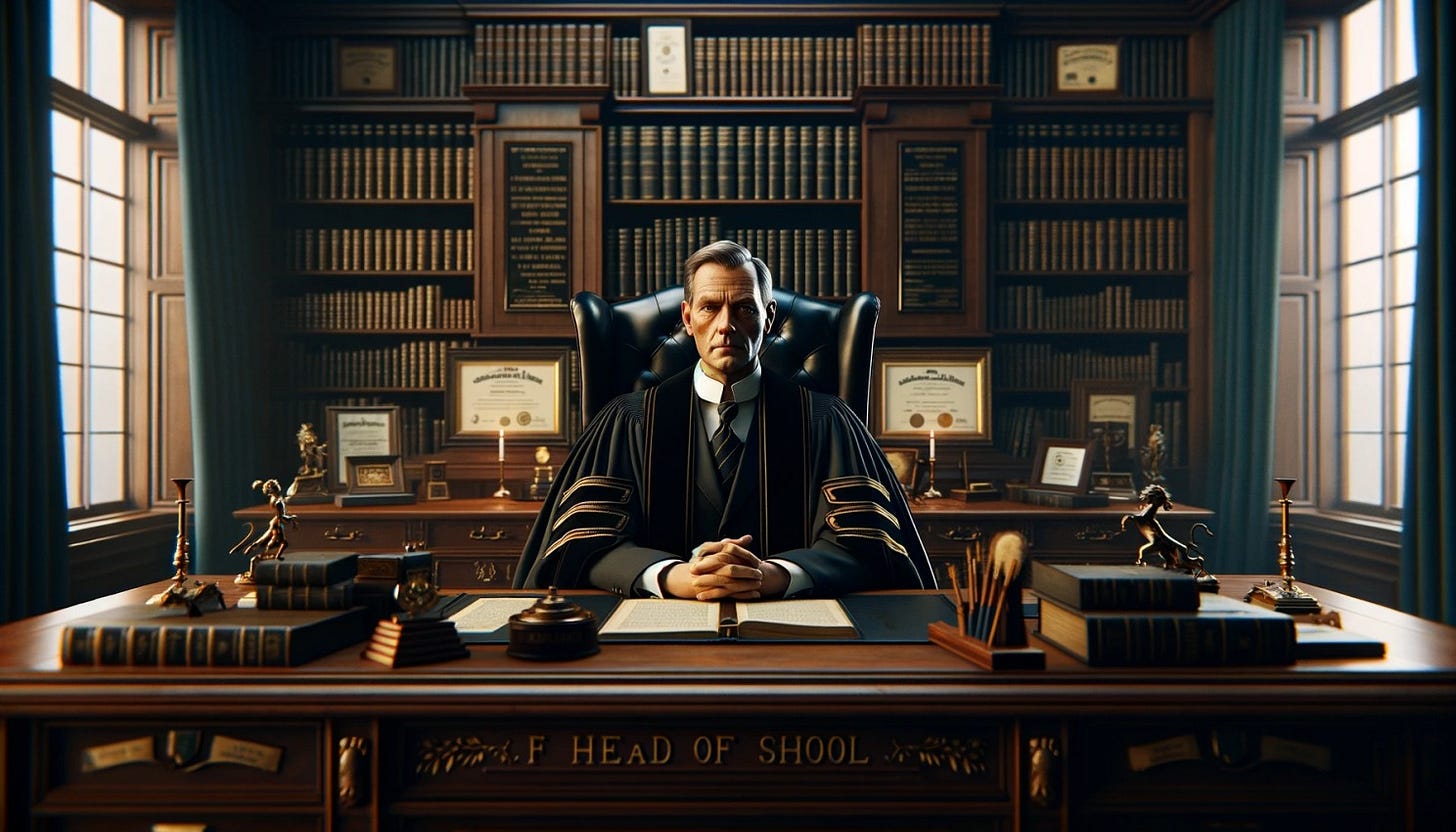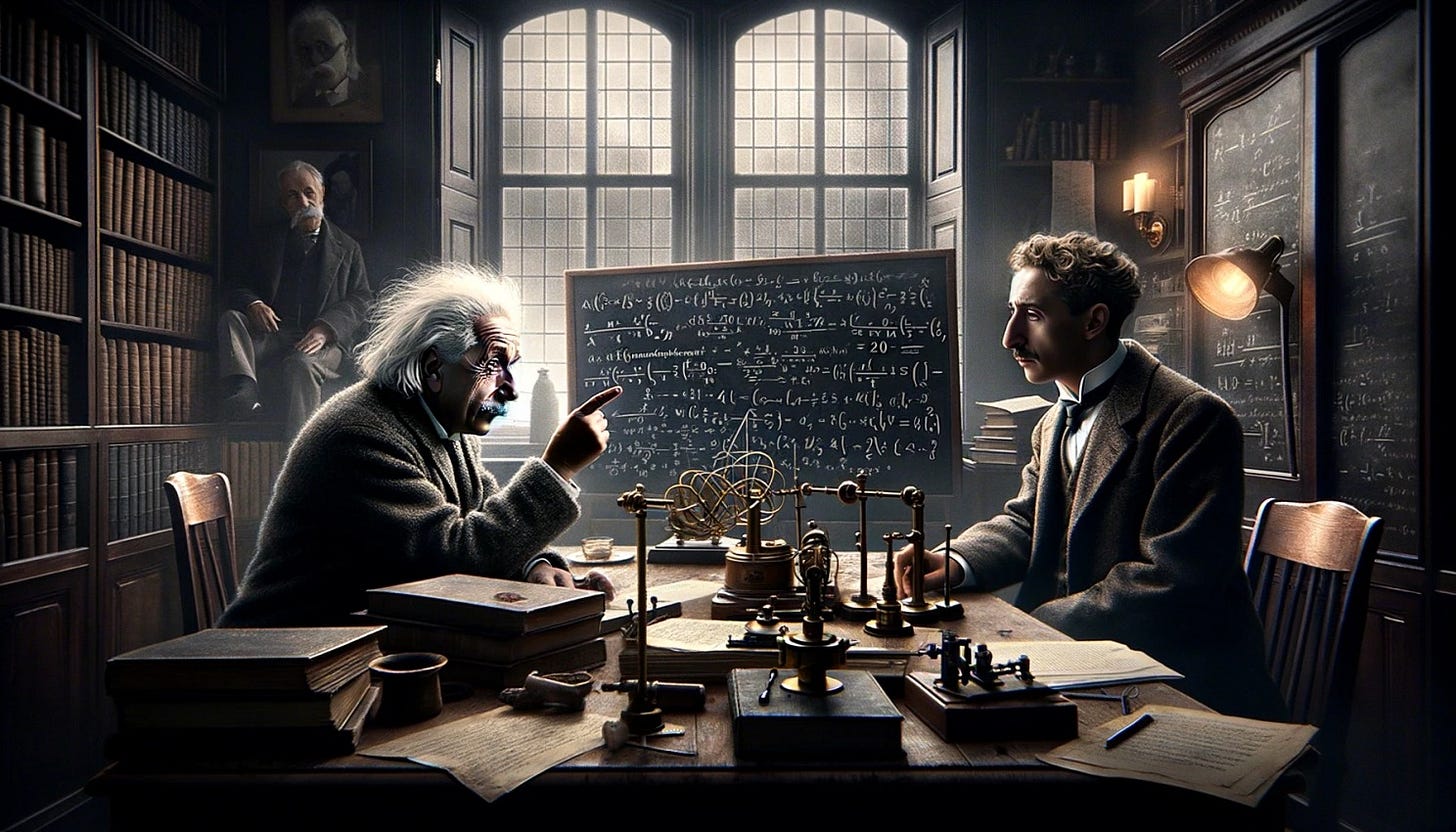Reframing Our Approach: The Quantum Paradigm Shift for AI Governance
As we embark on a discussion about the role of AI in education, it's essential to acknowledge the broader, more profound question looming over our traditional academic paradigms: Is AI not just a tool for innovation but also a catalyst for redefining the very boundaries of right and wrong, truth and falsehood, in our educational systems? This inquiry challenges us to consider whether the longstanding truths and principles that have guided academic and educational practices for decades might now be subject to disruption by the advent of AI technologies. It suggests that AI's impact extends far beyond practical concerns such as plagiarism and authenticity, urging us to confront the possibility that what was once considered immutable in education could now be questioned or even obsolete…
Policy on Plagiarism and AI-Generated Content
"To uphold the highest standards of academic integrity, the use of artificial intelligence (AI) systems, such as ChatGPT, to generate content that is submitted as original academic work without proper attribution is strictly prohibited. Plagiarism, defined as submitting material that is not one’s own original work without adequate citation, extends to content produced by AI. All members of the academic community are required to explicitly cite any AI-generated text or material included in their submissions. The failure to appropriately attribute AI-assisted content will be treated as a violation of academic integrity, subject to disciplinary action. This policy underscores the commitment to fostering an environment where learning and scholarship are rooted in authenticity, critical thinking, and personal intellectual engagement.” Illustrative Example of Policies Regarding Plagiarism and AI Use
In the early 20th century, the scientific dialogue between Albert Einstein and Niels Bohr regarding the foundational aspects of quantum mechanics ignited a profound reevaluation of the very nature of reality. This historical debate, which juxtaposed Einstein's quest for deterministic laws with Bohr's acceptance of quantum mechanics' probabilistic nature, illustrates a monumental shift in understanding the physical world. Unlike the deterministic expectations that governed classical physics, quantum mechanics introduced a realm where traditional rules no longer applied, urging scientists to embrace a new, uncertain reality. This quantum revolution bears a striking resemblance to the current transformative impact of AI on our societal norms, particularly concerning concepts of plagiarism, authenticity, and governance. The philosophical exchanges between Einstein and Bohr, especially their contemplations on the nature of reality and the limits of human knowledge, offer invaluable lessons for navigating the challenges posed by AI. Einstein's reluctance to accept the indeterminacy of quantum mechanics mirrors our own hesitations in facing the unpredictable outcomes and ethical dilemmas engendered by AI technologies. Meanwhile, Bohr's perspective, which emphasizes the necessity of adapting our conceptual frameworks to incorporate inherent uncertainties, guides us toward a more flexible approach in dealing with AI's complexities. It's evident that the deterministic rules and policies that once seemed sufficient to govern technology and intellectual property are increasingly inadequate in the face of AI's evolving capabilities.
The narrative of quantum mechanics challenges us to accept that the rules and concepts which prevailed in a pre-AI world might no longer be applicable. In the domain of generative AI, where the line between human creativity and machine-generated content blurs, the traditional benchmarks for determining plagiarism and asserting authenticity are being upended. This paradigm shift necessitates a reevaluation of our governance strategies, moving away from rigid attempts to box in AI's potential towards a more dynamic and adaptive regulatory framework.
By drawing on the quantum mechanics analogy, we recognize that just as the quantum world demanded a departure from classical physics' certainties, the advent of AI compels us to reconsider our attempts to control and categorize AI within fixed boundaries. Our preconceived notions about ownership, creativity, and intellectual property must evolve in response to AI's transformative impact. This evolution calls for regulatory frameworks that are as flexible and adaptable as the technology they seek to govern, ensuring that policies can keep pace with rapid advancements in AI.
In navigating the challenges of AI governance, we must foster a continuous dialogue and adapt our policies to reflect the nuanced realities of a world where AI plays a significant role. Embracing this shift means acknowledging the need for ethical standards, safety measures, and adaptability in our regulatory approaches. This not only ensures that AI's integration into society aligns with human values but also prepares us for a future where the distinctions between human and AI-generated content, and indeed our perceptions of reality itself, are increasingly fluid.
The intellectual odyssey of Einstein and Bohr into the depths of quantum mechanics serves as a potent reminder that our grasp of reality is invariably shaped by the conceptual frameworks we employ. These frameworks are not static; they must evolve in response to the relentless march of discovery that continually reshapes our understanding. One rule yesterday might not be relevant tomorrow. The age of AI is no exception to this rule. It challenges us to critically reassess and adapt our regulations, philosophies, and preconceptions to keep pace with technological innovation and its implications. As we find ourselves on the brink of this new frontier, we are confronted with a pivotal question: How prepared are we to question and redefine our longstanding perceptions of rules, ethics, and the delineation between right and wrong, in a world where AI will relentlessly challenges and redefines the limits of our understanding?
Pascal Vallet - February 2024 - In intellectual partnership with OpenAI's GPT engine to enhance knowledge depth, rhetorical polish, and conceptual clarity within a humanistic framework.






